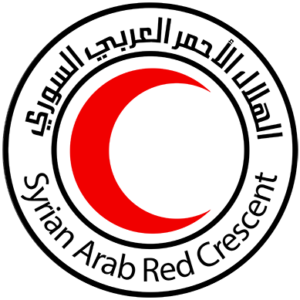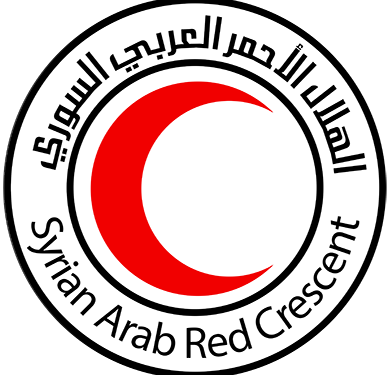
Syria crisis: ten years on, humanitarian situation worse than ever
Press conference SARC – ICRC – IFRC
Briefing of the Syrian Arab Red Crescent President Eng. Khaled Hboubati
Damascus, Syria, 4 March 2021
Opening Speech
Ladies and gentlemen,
Greetings from Damascus
For a decade now, people in Syria have been living in agony due to the brutal crisis, excessive sanctions, economic crisis topping that with COVID-19 epidemic left more than 13 million people in need of at least one type of assistance and about 8 million people unable to get their basic needs.
Today’s basic needs, like masks and sanitizers are luxury and hard to get for a lot of people in Syria. Winter is a challenging season as it recently has carried diseases, suffering and death.
More than 11 million Syrians, who used to be food secure are now depending today on humanitarian assistance. As the food prices have increased by 236%. More than 6 million people are displaced, along with the hosting communities and returnees, they are all struggling to secure their needs for food, water, health care and other basic needs. more than 12 million people are now food insecure, among them half million children suffering from chronic malnutrition.
The restricted trade in goods, the closure of borders, delays of field activities and the shortage of the protective items needed to ensure the volunteers’ safety are only a handful of the obstacles that hinder the humanitarian response. Syrian Arab Red Crescent volunteers provide life-saving aid to more than 5 million people all around Syria each month.
For that, the need to obtain adequate safety guarantees according to the International Humanitarian Law to allow humanitarians to respond in a safe environment and not to be a target. Responding to the people’s needs is a legal obligation and our volunteers are committed to do their duties according to the Red Cross and Red Crescent Movement fundamental principles.
The Syrian Arab red Crescent, a member of the Red Cross and Red Crescent movement, is the largest local humanitarian organization that has been working actively before the crisis and to date. More than 13,000 volunteers and employees are working within the organization, and they are themselves suffering the same miserable living conditions. They are doing their best to do their humanitarian duties and spare no effort to alleviate the people suffering across Syria.
In Al-Hol Camp in Hasakeh, where 95% of the residents are women and children Our volunteers continue are still providing services to the residents of the camp including running the field hospital, mobile clinics and the collective kitchen. Camps across Syria are built for temporary accommodation, they are not a place to live or raise children. This year, the heavy rains and storms have ripped off 217.000 tents in many sites leaving more than 121,000 people in open air with harsh weather conditions.
The IHL has stipulates that in a situation of displacement, all possible measures shall be taken in order for the civilian population to live in adequate conditions of shelter, food, hygiene, health, safety and keeping the members of one family together.
In Idleb, our branch is occupied by armed groups and has led to its closure and people are deprived of access to essential humanitarian services. Our 12 ambulances were taken and misused, our two collective kitchens were closed, our health facilities were shut down and materials were sold in the market having said that, we stand ready to do our humanitarian duties inside and outside Idleb, as well as any humanitarian corridors with full commitment to the principles of the International Movement of the Red Cross and Red Crescent Societies, and under guarantees that ensure the safety and protection of our volunteers. Humanitarian workers and facilities should not be a target and the principles of distinction and proportionality must be respected at all times.
Your generous support can help us change the bleak future about two and a half million children, who are out of schools, and allow them to regain their rights according by the Children rights Act. We can also preserve the dignity of 50% of the Syrians who have lost their livelihoods because of economic inflation or COVID-19.
Therefore, we are in dire need of more resources that ensure a reliable continuous supply of high-quality and efficient logistics, as well as sustainable funding, which is severely hampered because of the sanctions. It is well known that the exchange rate variation and the money allocated by donors to be transferred to the humanitarian partners in Syria and are facing significant challenges. The money transfers are always delayed and the humanitarian projects run into difficulties as a result. No food parcels or health care can be delivered before the money is received.
Sanctions also have an impact on importing medical equipment, supplies, and medicines, although they are already allowed in, but the companies and the suppliers are afraid of the consequences in case they send them to Syria . Even in first aid and relief aid delivery, the humanitarian process is stumbling due to the lack of the fuel needed for ambulances and aid trucks, power stations, generators for hospitals and blood banks. This all fall under the indiscriminate sanctions on everybody in Syria.
All that leave SARC in a serious crisis, because we are expected to continue responding and reach every affected person. It is literally life-saving and the line between life and death for many.
Today, more than ever before, we need more support.
Syrian Arab Red Crescent has suffered huge losses.
65 volunteers and employees had lost their lives in the line of duty.
They have deeply believed in their humanitarian action and have made an example of sacrifice for humanity and giving.
We highly appreciate the support provided by our partners who have always shared the responsibility towards the most vulnerable people, the IFRC, the ICRC and the UN Agencies but the needs are huge and It is Time to let humanity prevail over politics.
Thank you


